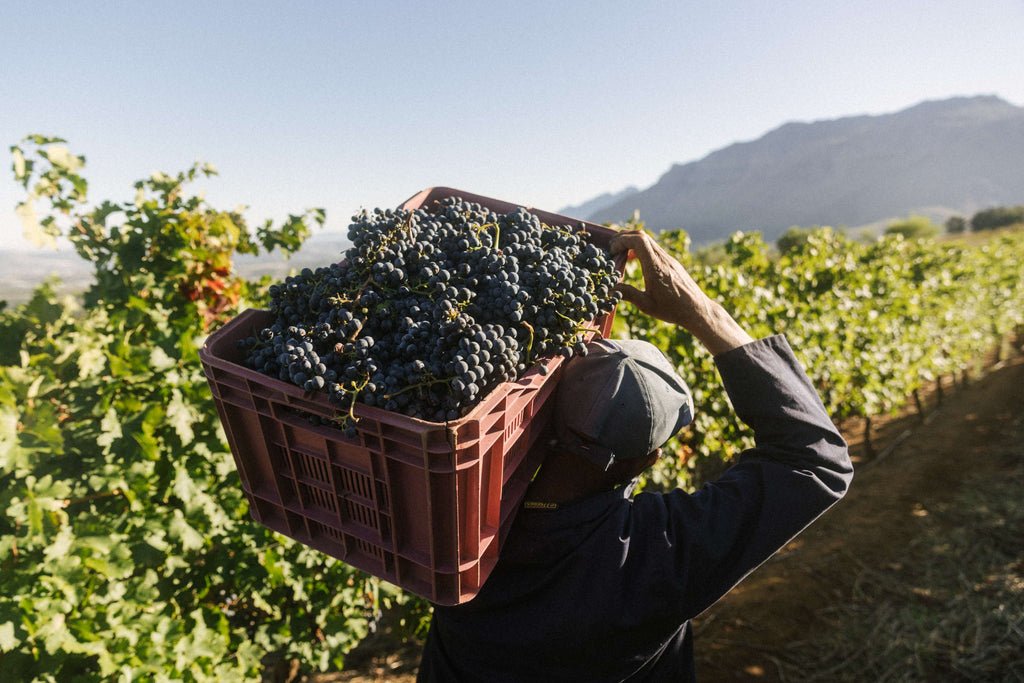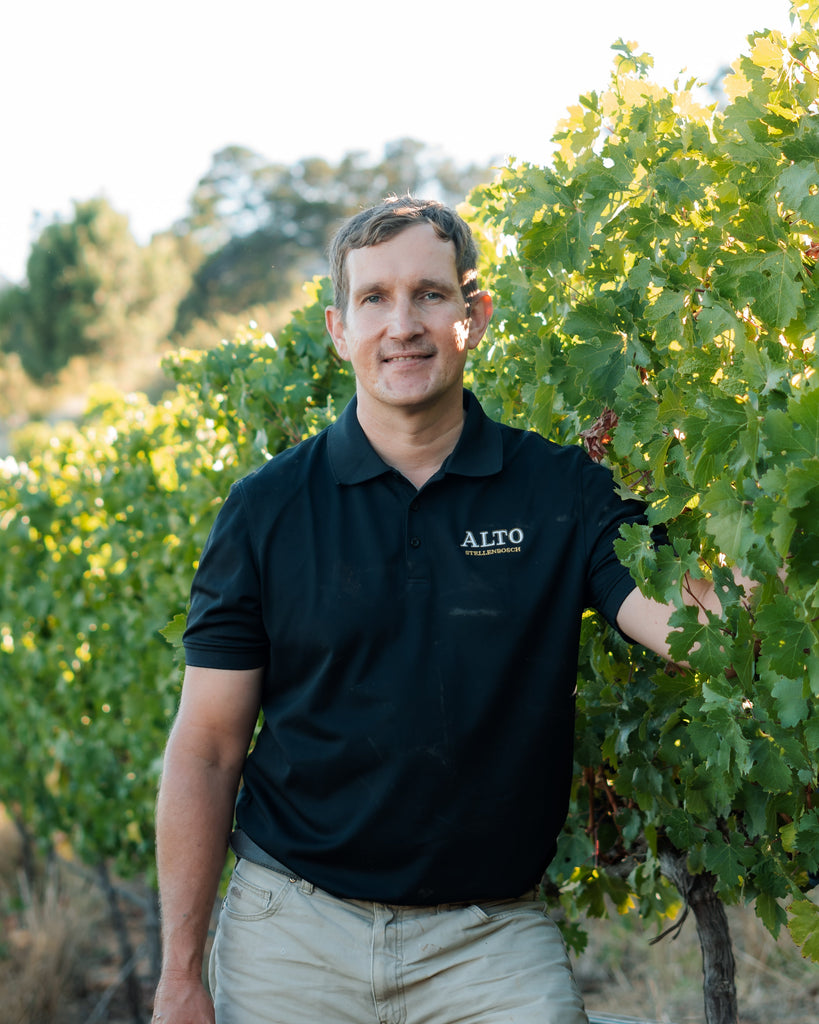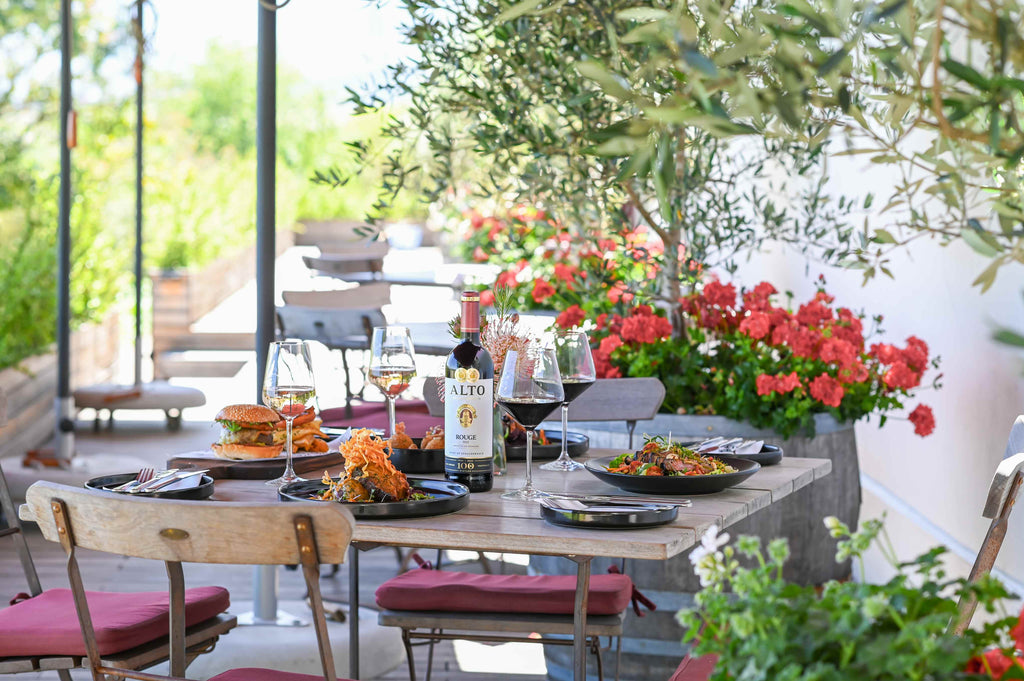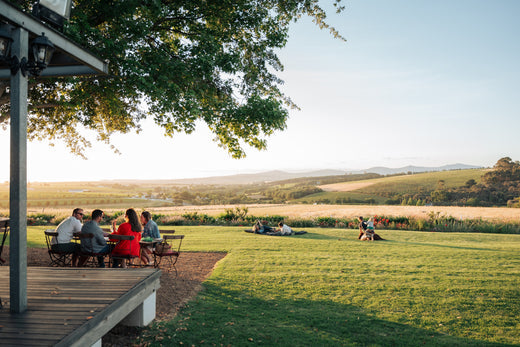Healthy soil makes healthy wine – and Alto has it covered!

Artist : Alto Wines
Good wine is made in the vineyard. This saying is as old as time itself in the wine industry. One can however take it a step further and say that to cultivate vineyards that produce quality grapes you need healthy soils.
Cape wine grape producers on home soil are currently sowing their cover crops for the upcoming season – a practice that not just ensures good and healthy soils but also help to buffer a farm’s vines against the effects of climate change.
Planting cover crops in the vineyard is a practice the team at Alto Wine Estate has embraced many years ago, Danie van Zyl, the viticulturist of this respected red wine producing farm on the slopes of the Helderberg, explains.
He has been cultivating the earth of this iconic wine estate in the Cape Winelands since 2002 and knows the ins and outs of every piece of it. “We really are very privileged to be able to farm on the slopes of the Helderberg – and on Alto. We have beautiful deep red, rich and fertile soils. It really isn’t hard to farm here,” he says.
“Our vineyards don’t need so much fertilizer and manure as many of the other farms in the area with their sandy soils. Our location also plays in our favour. Our proximity to nearby False Bay means we get a lovely cool sea breeze in the summer – something that greatly contributes to the excellent quality of our wine grapes,” Danie adds.
Over the years Alto has established itself as one of the most respected red wine producers in South Africa. The focus here is mostly on Cabernet Sauvignon, along with Shiraz, Cabernet Franc and a small amount of Petit Verdot.
The foundation for Alto’s success can be traced back to the vineyard – and more importantly, the meticulous way the soil here is cared for and maintained. The team on Alto really strive for quality: They strive to produce the best quality wine possible and to use to best vineyard practices at their disposal, Danie explains.
And the use of cover crops form part of and greatly contribute to their strive for success. “We have been planting cover crops for many years. In the beginning we didn’t rotate our cover crops as much as we do now. We have however tested various varietals over the years, and we know what works on the farm. Every farm is different. We tried fava beans and medics in the past, but they didn’t work so well here. We like to play around a bit and see what works where,” Danie says.
A mixture of Saia oats, korog and barley currently form part of Alto’s cover crop arsenal – contributing to everything from moisture conservation and sustainability and helping to manage erosion and effectively suppress weeds in the vineyards.
It also helps to keep costs low with regards to the use of herbicides, and improves yields, quality, and profitability. “My focus is to leave the farm behind in a better condition than what I found it in. I am not going to be here forever and try to manage the soil and everything that goes with it so that it just gets better and better. I don’t want the next generation to arrive and think: ‘Geesh look at all the nonsense this guy has created,’” Danie says.
“I also deeply love the environment and believe taking care of nature is important. I therefore farm in harmony with nature as much as I can and try to be as sustainable as I can when it comes to farming practices. I come from a farming background; farming is in my blood. And if you love farming and you love the vines, you automatically strive to be better and improve what you are working with.”
According to Danie timing is very important when it comes to sowing cover crops. You also need good quality seed from a reputable seed provider. “This hasn’t been the very best year for cover crops as we haven’t had much rain yet. If you sow too early and the rain doesn’t come, the mice among others eat all your seed. Also make sure to get your seed from a trustworthy source; it must be certified. You can really burn your fingers if you don’t and ultimately end up with a big weed problem that will cost you even more money to manage and suppress.”
Alto has about 90 hectares of vine with approximately 50 to 60 hectares in production now. “Alto is currently in a renewal phase. We replace about 10 hectares of our old vines annually and in about 6 to 8 years’ time the farm will consist of healthy, virus-free young vines that produce wine grapes of an excellent quality. We are hands-on when it comes to vineyard management and follow a well thought out planting plan,” Danie explains.
“We are very happy with the quality of the wines produced from the 2024 harvest. Our yields were down between about 20% to 30%, but it was the same for all the farms in the region. The young vines we established on the farm look good, and we are looking forward to being virus-free. The future looks bright, and I believe we are on the right path.”








